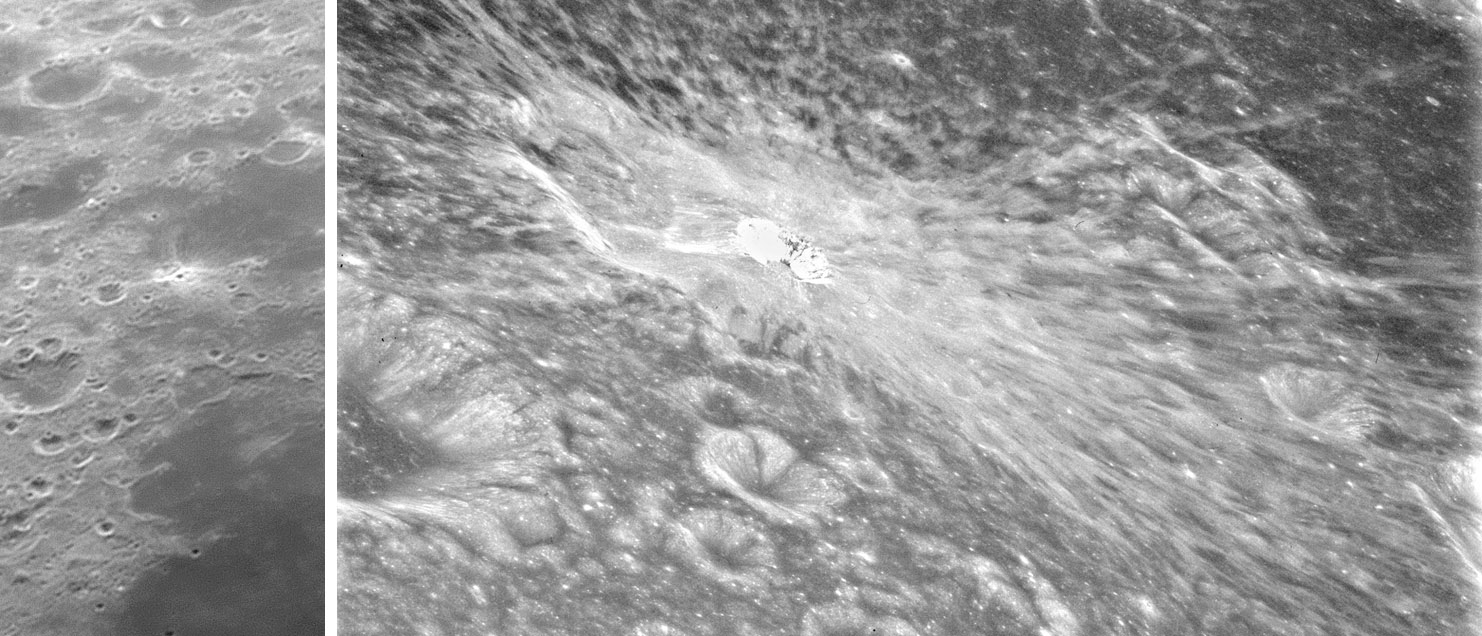left image by Achille Giordano, Naples, Italy; right image from Ap17-151-23261
Is Achille’s image the first knowingly taken of the 5 km wide crater Petit? I know that I have observed this region and must have seen the bright crater, but did not guess that it had a name. Is it called Petit because of its size? Or because 151 years ago Frederic Petit announced the discovery of a very small second Moon that circled Earth every 2 hours 44 minutes and 59 seconds? No, the name was approved in 1976 not for these lunar reasons, but only because it appeared on a large scale topographic map published by NASA in 1974. Despite this inauspicious naming, the little crater does serve one of the main goals of a named piece of geography - it is a landmark. It is almost blindingly bright at full Moon and as the Apollo 17 image reveals, it is a dramtic oblique impact feature. I bet that everyone will knowingly observe it now.
Technical Details:
22 April, 2007, 19:51UT. ETX 125 Mak f/15 + 2X Barlow Apo +DMK 21AF04 As, 257 frames stacked in Registax 4.
Related Links:
Rükl chart 38
Yesterday's LPOD: How High Are Rims?
Tomorrow's LPOD: Half a Circle
COMMENTS?
Register, Log in, and join in the comments.




